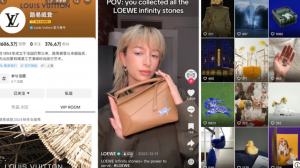Netizens demanded that the Zao face-swapping app be removed from app stores after noticing that it had reserved the right to sell user-generated content to third parties.
A newly released face-swapping app has come under fire for a clause in its terms and conditions allowing it to sell users’ photos and videos, Sixth Tone’s sister publication, The Paper, reported Sunday.
Zao — meaning “make,” “build,” or “fabricate” in Mandarin — turns users into “stars” by digitally grafting their faces onto the bodies of celebrities in scenes from movies, TV shows, and music videos to create what is known as a “deepfake,” a technological portmanteau combining “deep learning” and “fake.”
After downloading the app, users are asked to upload photos of themselves that can be used to make a face-flipped clip of their choice. Each video takes less than 10 seconds to generate, with enhanced quality if users agree to let their cellphone’s camera film their face from various angles, and while blinking their eyes or opening their mouths.
Lei Xiaoliang — head of the Changsha-based company that developed Zao — also co-founded Momo, one of China’s most popular dating apps. Since its release Friday, Zao has rocketed up the charts to become the No. 2 most widely downloaded free app on Apple’s China app store as of Monday evening.
Over the past three days, Zao users have been sharing self-made videos on their social feeds on WeChat, Tencent’s ubiquitous messaging app. Zao’s average ratings, however, dropped dramatically across several app stores after netizens discovered a problematic clause in the user agreement. Continue to read the full article here.
– This article originally appeared on Sixth Tone.







